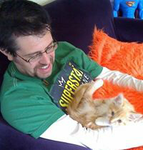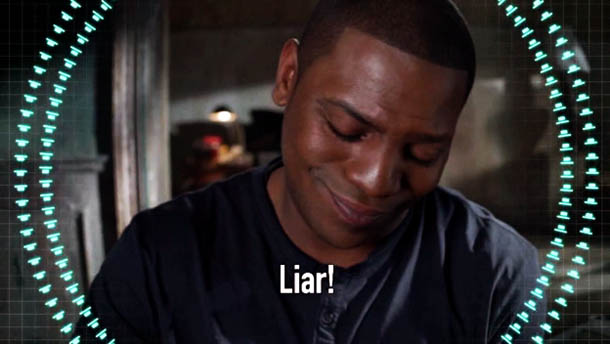Why you can trust GamesRadar+
The drug of a nation
4.03
Writer: Jane Espenson
Director: Billy Gierhart

THE ONE WHERE Everything points to drugs company PhiCorp knowing about Miracle Day before it happened, and Jack gets drunk and doesn’t regret it.
VERDICT Great opening. Great ending. A lots of unfocussed faffing about in-between. The odd thing about this episode of Miracle Day is that any individual scene taken out of context will have a lot going for it: a great ethical discussion; a snappy bit of dialogue; a riveting confrontation; a great piece of action. But somehow, when the whole thing is cut together into a finished piece, it seems rather slow, stilted and more defined by what we don’t get to see than what we do. The whole is less than the sum of its kinky, freaky, disturbing parts, and the pace is worryingly sluggish.
The discovery of PhiCorp should feel like a revelation as massive as the company’s warehouse, but somehow the impact is underwhelming, because the Torchwood team react to it by finding a handy shag or skyping the boyfriend. Oswald continues to be a fascinatingly mercurial character, but we’re getting more evidence that some people still hate him rather than why other people are beginning to regard him as some kind of saviour. And while the Soulless marches are a striking image, what are they trying to achieve?
And once again, the physical effects of Miracle Day are being minimised on screen in favour of theoretical discussions about its effects. Granted, the opening scene with Rex threatening his old boss by pondering which part of brain to blow out to make sure he’ll never be able to control his pissing ever again is powerful. And Vera arguing that the strangled woman has dust for bones is effective. But there’s not enough of these in-your-face examples of the post-Miracle Day world. We don’t need to be hit over the head with walking, talking corpses every other minute, but it would be nice to be reminded what the Torchwood team is fighting for.
It’s galling to have to moan about how unfocussed and lacking in killer, showstopping scenes this episode is, because there’s also plenty to enjoy. Gwen is on great form, knocking a guard unconscious by yanking his tie. Jack’s awkward, drunken phone call to Gwen is genuinely touching. Vera gets to play spy – she may not be one of the series’ top line stars but she providing some solid back-up. The mystery over the triangle is deepening. The humour feels less forced than last week; Esther typing “Liar” into the contact lens interface is a top moment.
So it remains thoroughly watchable, and is dealing with big issues more intelligently than the vast majority of SF shows in the last decade or so (Battlestar being in the revered minority, of course). It’s simply frustrating that it feels so darned listless at the moment.
TRIVIA The spying contact lenses were first introduced in the series two episode “Reset” when they were worn by Martha Jones, and used again in Children Of Earth by Lois Habiba to spy on government negotiations.
TRIVIA 2 Gwen lies that the contact lenses are “isomorphic”, which in the real world means “similarity in organisms of different ancestry resulting from convergence” but in Whoniverse speak is a made up concept meaning “something technology can only be used by a certain person”. The term was first introduced in “Pyramids Of Mars” when the Doctor described the TARDIS controls as isomorphic. He was clearly lying too.
IN-JOKE Jack describes the PhiCorp warehouse as “Bigger on the inside than the outside,” which clearly reminds him of something (we don’t think this means PhiCorp has a TARDIS, we assume it’s just a gag).
CUT! Jane Espenson may have tweeted that only ten seconds of boffing were cut from the episode, but we made it nearer 30. Here’s some of what we missed in the UK:

BEST LINES:
Rex: “You weren’t impaled.”
Jack: “You should have seen the other guy. Ooooh, that face. Rex doesn’t like his jokes too gay.”
Rex: “No, Rex doesn’t like men in their forties acting like they’re twenty.”

Dave is a TV and film journalist who specializes in the science fiction and fantasy genres. He's written books about film posters and post-apocalypses, alongside writing for SFX Magazine for many years.



